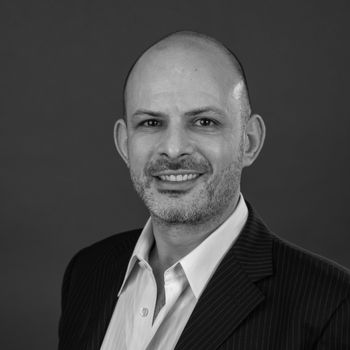PROF. GIORDANO: Divert DEI Funding to Make a Real Impact
The massive spending on DEISJ industrial complex does nothing to close the widening academic achievement gap, reverse the historic drop in basic proficiency levels, and instill essential critical thinking skills.
Nicholas Giordano is a professor of Political Science, the host of The P.A.S. Report Podcast, and a fellow at Campus Reform’s Higher Education Fellowship. With 2 decades of teaching experience and over a decade of experience in the emergency management/homeland security arena, Professor Giordano is regularly called on to speak about issues related to government, politics, and international relations.
The American education system is going all in on Diversity, Equity, Inclusion, and Social Justice (DEISJ), spending millions of taxpayer dollars to fund these initiatives throughout the country, at both the K-12 and college levels. But, the focus on DEISJ is overshadowing the real catastrophe in our education system, which is the failure to adequately educate our students, particularly those from underserved communities.
Good intentions don’t translate into effectiveness. The massive spending on DEISJ industrial complex does nothing to close the widening academic achievement gap, reverse the historic drop in basic proficiency levels, and instill essential critical thinking skills necessary for a productive citizenry. All it does is continue to feed this lucrative industry.
[RELATED ”PROF. GIORDANO: The Changing of the Guard: From Educators to Ideologues]
The stats are sobering. Those charged with managing public education in this country have failed today’s student body, especially those from impoverished communities. Shockingly, 23 public schools in Baltimore have failed to produce a single student proficient in math, despite spending a staggering $21,606 per student per year. Moreover, students in New York State performed twice as poorly as the national average in math and reading. The New York State Board of Regents has concealed its culpability for the catastrophic failure by lowering the minimum proficiency score instead of taking accountability. This is an unacceptable nationwide trend.
Shamefully, the NYS Board of Regents is not alone as administrators have consistently lowered the bar. My classroom, along with many other college classrooms across the country, inevitably receive students who have been repeatedly cycled through the education system despite their lack of readiness for college-level coursework.
The Department of Education found that 68% of public 2-year and 40% of public 4-year institution students took at least one remedial course for material they should have already learned. Taking remedial courses has been linked to lower graduation rates among students. The misguided approach to education is particularly concerning for disadvantaged students who are already facing significant challenges and are at risk of being set up for failure.
Those in power prioritize political agendas over equipping students for academic and workforce success. There is zero evidence showing that DEISJ programming improves student outcomes. However, plenty of data and evidence is available pointing to programs and approaches that work. If those in charge care about improving student outcomes, they’ll apply this information and refocus spending towards methods that have an impact.
Returning tax dollars to parents can empower them to make informed decisions on their children’s education, especially for underrepresented communities. Studies indicate that school choice programs have positive effects on academic outcomes, including higher graduation rates, college enrollment, and future earnings. It is unacceptable to limit students’ opportunities based on their zip code. School choice programs do not add to the tax burden on Americans since the funding is already allocated.
Lowering college tuition costs should be a top priority, as many colleges have taken advantage of government involvement in student loans and significantly raised tuition rates. Socioeconomic status is the greatest barrier to quality education. Students and parents would likely prefer bringing down the cost of college over DEISJ indoctrination. By lowering tuition costs, we can ensure that students from all backgrounds have access to a quality education without placing an unnecessary financial burden on them and their families.
[RELATED: PROF. GIORDANO: Why I am speaking out against DEISJ requirements]
Another issue is how colleges are prioritizing DEISJ spending over career services budgets, despite the latter’s crucial role in ensuring underrepresented students’ success in finding fulfilling careers. A 2018 McGraw Hill study showed that students with access to college career services felt twice as prepared for the workforce. Administrators that chose to fund DEISJ over career preparedness prove that universities have misplaced their priorities when it comes to helping students succeed.
These are three ideas that would have far more tangible results than DEISJ programs, and they avoid the pernicious effects of DEISJ on our society, which propagate tribalism and victimhood, causing division and damaging our social fabric. Instead of misplaced priorities, let’s focus on practical strategies that use tax dollars wisely to improve our education system and help underrepresented groups achieve socioeconomic mobility.
Editorials and op-eds reflect the opinion of the authors and not necessarily that of Campus Reform or the Leadership Institute.

